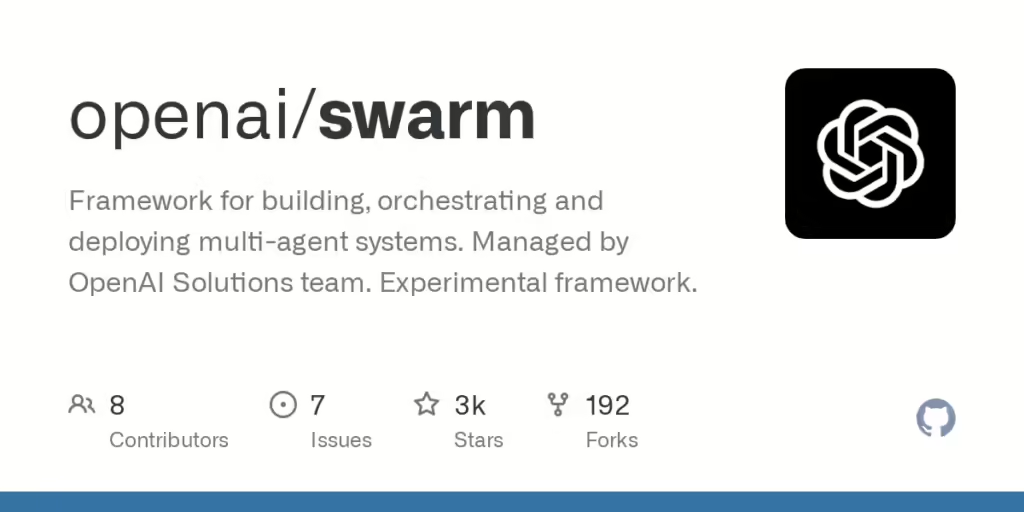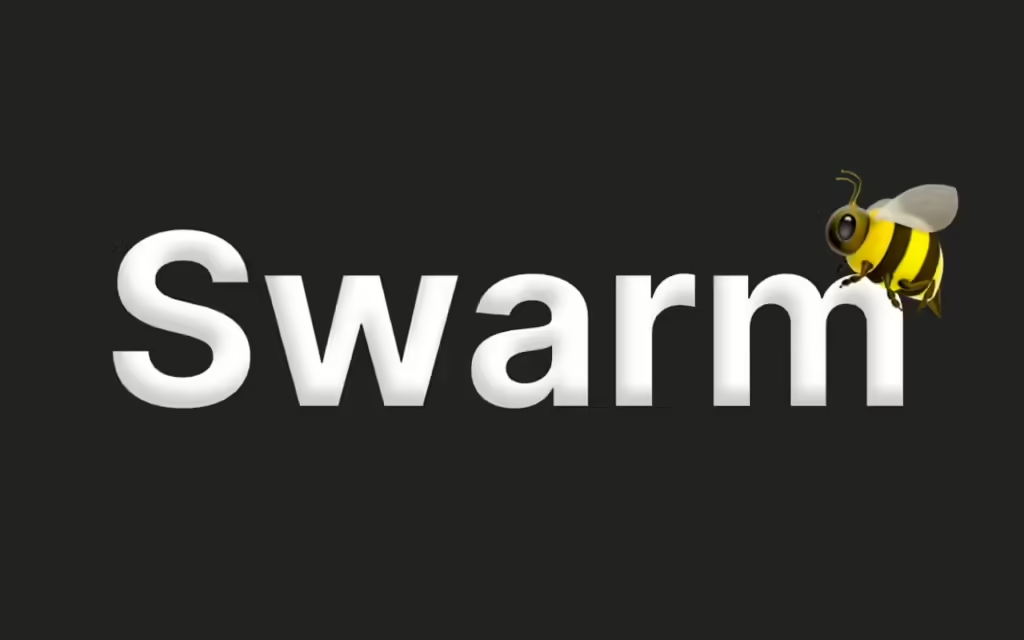
Introduction to OpenAI Swarm
OpenAI has unveiled an experimental framework named Swarm, designed to enhance the collaboration and interaction of multiple AI agents. This initiative equips developers with tools to create networks of AI agents that can operate autonomously, tackling complex tasks with minimal human intervention. Although its launch was relatively understated, Swarm carries significant implications for the future of artificial intelligence.
Core Components of Swarm
The Swarm framework is built around two primary components: Agents and Handoffs. OpenAI defines an agent as an AI entity programmed with specific instructions and tools that enable it to autonomously complete tasks. When necessary, these agents can “hand off” tasks to one another, facilitating seamless task delegation and collaboration.

Lightweight and Controllable Collaboration
OpenAI emphasizes that Swarm prioritizes lightweight, controllable, and easily testable collaborations between agents. Unlike traditional systems, these agents can represent workflows or individual steps in complex operations, such as data retrieval and transformation. This modular design allows for the breakdown of sophisticated processes into manageable tasks distributed among agents.
Accessibility for Developers
The Swarm code and related resources are available for free on GitHub, allowing developers to explore its potential. However, OpenAI clarifies that Swarm is not an official product but rather an experimental framework akin to a “cookbook” for building simple agents. It is not intended for production use and will not receive ongoing maintenance.
Concerns Surrounding AI and Employment
While Swarm illustrates the trend toward multi-agent AI systems, it also raises important concerns regarding job displacement and the risks associated with autonomous systems. Many fear that such technologies could lead to layoffs, particularly among white-collar workers. However, others believe that AI may reshape jobs rather than eliminate them entirely.
Risks of Autonomous Decision-Making
There are additional risks associated with autonomous agents, including the potential for malfunctioning or biased decisions. If these systems operate without oversight, they could pose security threats. OpenAI stresses the importance of thorough evaluations, encouraging developers to implement custom assessment tools to measure their agents’ performance effectively.
The Future of AI Development
Swarm’s experimental nature contributes to the ongoing dialogue about balancing innovation with responsible AI development. As the tech industry continues to evolve, frameworks like Swarm will play a crucial role in shaping the future of multi-agent systems while addressing the ethical and practical challenges they present.


